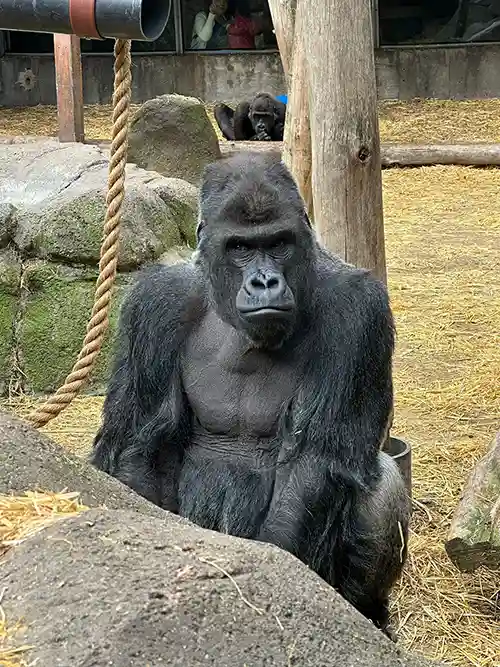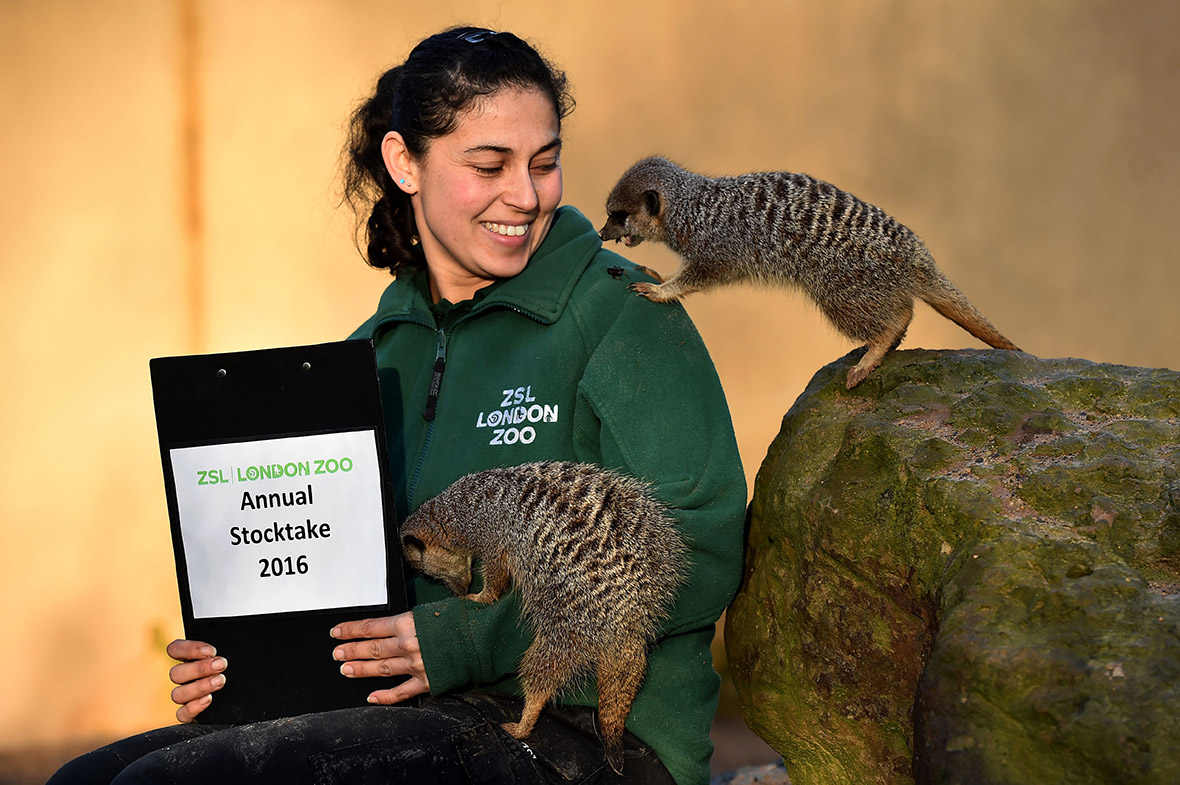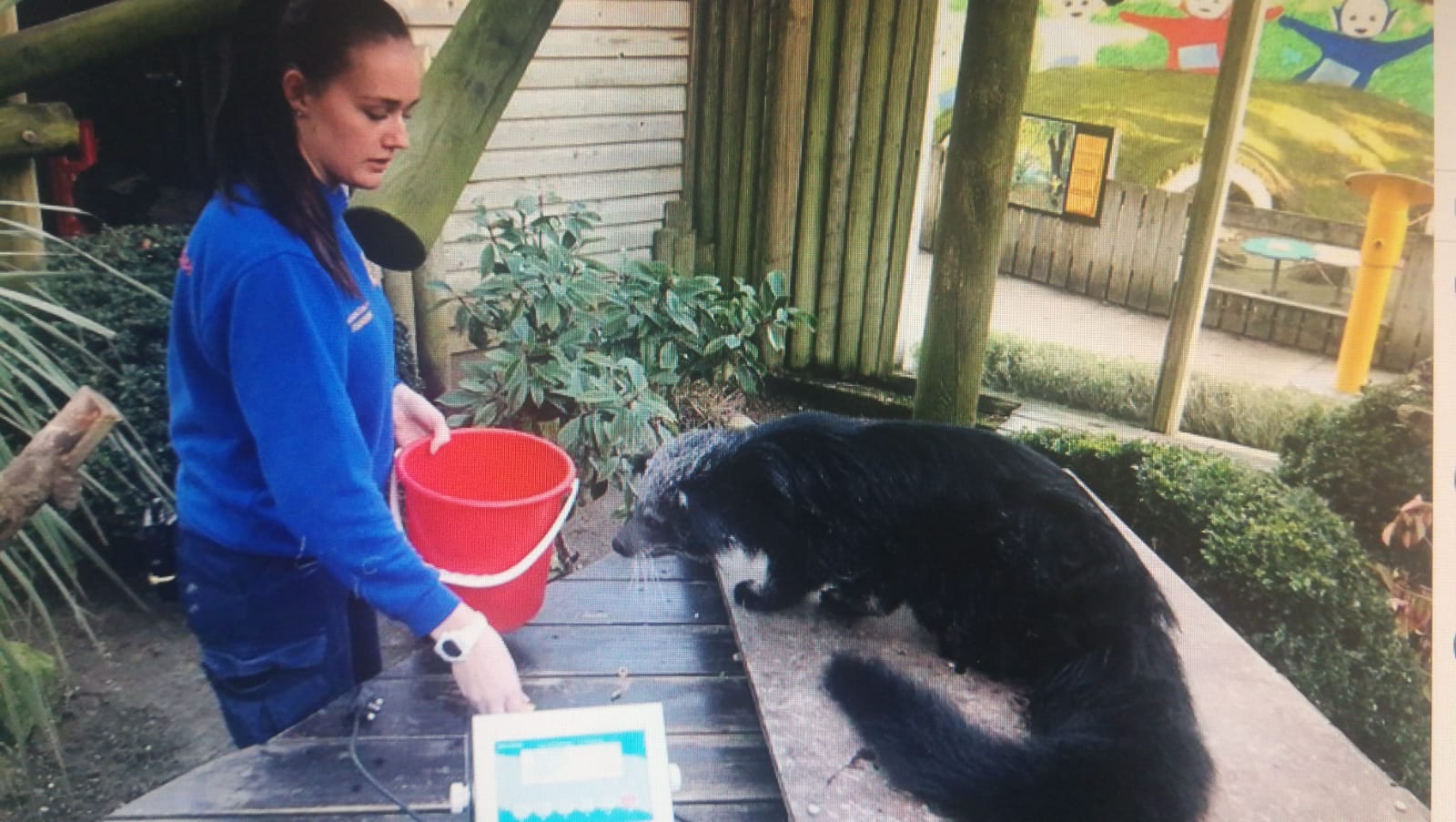How To Become A Zoo Keeper?
페이지 정보

본문

"The greatness of a nation and its ethical development can be evaluated by the way its animals are dealt with." - Mahatma Gandhi

Do you like animals and imagine working in a zoo? Zoo keepers are type in safeguarding wildlife and taking care of animals. At locations like the Zoological Society of London (ZSL), over 20,000 animals get the care they need from specialists.

To become a zoo keeper, you require effort, education, and a love for animals. This task is interesting, letting you work with lots of species and aid with important conservation work. If you're into wildlife or animal welfare, zookeeping might be perfect for you.
Beginning your zoo keeper profession implies learning what's needed. This guide will cover education, experience, and more. It's all you need to understand to begin a fulfilling zookeeping profession.
Comprehending the Role of a Zookeeper
Exploring what a zookeeper does exposes a function filled with obstacles and benefits. They concentrate on animal welfare and conservation. Zookeepers work hard to keep animals healthy and zookeeper delighted in their care.
Daily Responsibilities and Tasks
A zookeeper's day is filled with crucial jobs:
- Preparing meals that meet each animal's nutritional needs
- Cleaning up enclosures to keep them clean and safe
- Supervising animal health and behaviour
- Giving medicines and treatments as needed
- Developing activities to keep animals psychologically sharp
Working Environment and Conditions
Zookeepers work outside in all kinds of weather. They manage both indoor and outdoor areas. The job needs being fit and able to manage the demands of taking care of animals.
"Being a zookeeper is more than a task - it's an enthusiastic commitment to animal care and conservation."
Types of Animals and Specialisations
Zookeepers can specialise in numerous animal groups:
- Primates
- Big cats
- Marine mammals
- Reptiles
- Birds
Your role might involve dealing with 2-5 different animal types. This requires a great deal of knowledge and the capability to adapt.
Essential Skills and Personal Qualities for Zoo Keeping
To be a top zookeeper, you need more than just a love for zookeeper animals. Your job will be difficult and require you to handle animals and people well. You'll also need to comprehend animal behaviour.
What zoos look for in people includes:
- Exceptional patience and psychological strength
- Strong physical conditioning and stamina
- Eager observation abilities
- Capability to stay calm under pressure
- High level of empathy towards animals
Getting hands-on experience is key to mastering this function. You'll need to show:
- Advanced understanding of animal care techniques
- Efficiency in animal handling and safety protocols
- Efficient communication with both animals and human visitors
"A terrific zookeeper connects science, empathy, and preservation in every interaction with animals."
You should know about animal nutrition, behaviour, and fundamental veterinarian care. A lot of zookeepers learn through training, volunteering, and ongoing knowing.
Zookeeper work is not simply a task. It's a big commitment to teaching about wildlife and assisting conservation. Your enthusiasm and effort will make you stand out in this satisfying career.
How to Become a Zoo Keeper
Beginning a career as a zookeeper requires cautious planning and education. You need to first comprehend the educational needs and training courses. These will turn your love for animals into a task.
Educational Requirements
To be an excellent zookeeper, you need a strong academic base. Most tasks search for specific certifications:
- At least 5 GCSEs at grade 4 or above, including English, mathematics, and science
- A levels or higher education credentials
- A college degree in biology or animal science
- Level 3 Diploma in Animal Management
Necessary Certifications
Getting special certifications can really assist you in your zookeeper profession. Essential ones include:
- Diploma in Management of Zoo and Aquarium Animals (DMZAA)
- Zookeeping Level 3 Diploma (RQF)
- Animal handling certificates
- Emergency treatment qualifications
Training Programs and Apprenticeships
Getting hands-on experience is key in zookeeper training. Many places provide excellent possibilities:
- Unpaid apprenticeships at wildlife parks
- Internship programmes at widely known zoos
- Practical training at places like Colchester Zoo and Dartmoor Zoo
- Offering to acquire real-world skills
Pro idea: Create an in-depth portfolio to show your animal care abilities. It will help you in task applications.
Structure Relevant Experience in Animal Care
Getting hands-on experience is key for those wanting to be zookeepers. The task is extremely competitive. So, it's important to start constructing a strong base in animal care.
Your journey begins with finding methods to work directly with animals. This is a strategic action.
"Experience is the very best instructor in animal care" - Wildlife Conservation Experts
Here are effective ways to get experience dealing with animals:
- Volunteer at local animal shelters to establish standard animal handling skills
- Look for internships at wildlife rehab centres
- Explore part-time positions at veterinary centers
- Contact your local zoo for possible volunteer opportunities
Offering is a fantastic way to discover animal behaviour and care. Many zoos and animal shelters are trying to find individuals who want to find out. These places offer fantastic opportunities to get hands-on experience and reveal your devotion to animal welfare.
Here are some ideas to maximize your experience:
- Keep a record of your abilities and interactions
- Connect with professionals in animal care
- Ask for referrals and recommendation letters
- Stay relentless and show your real passion
Keep in mind, practical experience makes you stand out in the zookeeping world. Each time you work with animals, you learn more. This increases your chances of getting a job in animal care.

Profession Pathways and Professional Development
Starting a career as a zookeeper is amazing. It uses many opportunities to grow and specialise. Your journey starts with understanding the different courses in this field.
Entry-Level Positions
Entry-level jobs in zookeeping are a fantastic start. They provide you hands-on experience. Zoos try to find prospects with:
- Level 2 Diploma in Animal Care (minimum qualification)
- GCSEs in English and a scientific topic
- Volunteer experience at animal shelters or farms
Career Progression Opportunities
As you get experience, your career can grow. You can go up to:
- Junior Keeper
- Senior Keeper
- Group Leader
- Specialist Roles
"Continuous knowing and practical experience are essential to advancing in your zookeeping profession."
Specialised Roles
You can likewise select unique locations like:
- Conservation reproducing programmes
- Animal training
- Wildlife research study
- Educational outreach
About 25% of zookeepers get advanced degrees in zoology or animal conservation. Getting Level 4 qualifications can increase your chances for senior roles and research.
Working Hours and Physical Demands
Becoming a zookeeper suggests you'll work more than just routine hours. You'll deal with difficult physical obstacles and require to be flexible, consisting of weekends and holidays. Zoos are open every day, so you'll typically work when others relax.
"Zoo keeping is not a common 9-to-5 job-- it's a lifestyle of dedicated animal care and commitment."
This job is physically demanding. You'll work outside in any weather, lifting heavy items over 50 pounds. Your tasks might consist of:
- Early morning feeding schedules
- Cleaning up animal enclosures
- Preparing specialised diets
- Conducting health checks
- Maintaining intricate environments
Shifts can begin as early as 5 AM and go late into the night. You'll be on your feet most of the time, moving in between animal zones. Weekends and holidays belong to the task, requiring lots of endurance and devotion.
In spite of the challenges, this task has great rewards. You'll grow strong, both physically and emotionally. You'll likewise make fantastic connections with unbelievable animals.
Health And Wellness Considerations
Being a zookeeper features its own set of obstacles. It's essential to understand how to keep both animals and personnel safe. This suggests following stringent health and wellness rules.
Zookeepers face a special environment where security is crucial. Studies reveal that health and wellness are now as important as the zoo's main work.
Danger Management Strategies
There are a number of ways to manage risks in zoos:
- Daily checks of animal enclosures for risks
- Counting animals at the start and end of shifts
- Seeing how visitors act near animals
- Being ready for emergency situations
Animal Handling Safety Protocols
Knowing which are most unsafe is essential. Huge animals like rhinos can be very risky. There have actually been cases where zookeepers got seriously harmed.
Security isn't just about wearing gear - it's about understanding animal behaviour and staying alert.
Individual Protective Equipment
Zookeepers need to use the ideal gear, consisting of:
- Special gloves for managing animals
- Strong shoes for grip and safety
- Clothes that protects against germs
Getting immunized versus illness like liver disease B and zookeeper rabies is also essential. It helps keep zookeepers healthy in their tough job.
Wage Expectations and Job Market
Considering a career in zoo keeping? It's essential to know about salaries and the job market. The field is growing, zookeeper with more chances in the UK.
Let's take a look at what zoo keepers can earn at different stages:
- Entry-level zookeepers begin at about ₤ 14,000 a year
- Qualified ones make between ₤ 16,000 and ₤ 22,000
- Senior zookeepers can earn approximately ₤ 30,000 or more
The job outlook for zoo keepers is excellent. The sector is anticipated to grow by 5% in the UK by 2029. This implies around 3,910 brand-new jobs will be offered.
"The Association of Zoos and Aquariums supports expert development for zoo keepers," a report says.
Salaries vary based upon numerous things:
- Experience level
- Expertise
- Where you work
- The zoo's size and type
While the pay may not be high, the joy of working with animals is valuable. The typical income is around ₤ 17,000. But, total earnings can be between ₤ 13,000 and ₤ 27,000 a year.
Conclusion
Starting a career in animal care is an exciting journey. It needs devotion, enthusiasm, and a love for learning. With over 350 zoos and wildlife places in the UK, there are lots of job chances. You'll get to work with fantastic animals and help protect wildlife.
To be a zoo keeper, you need more than just love for animals. You need to have a good understanding of biology, have the ability to interact well, and constantly wish to discover more. You'll gain hands-on experience, learn more about animal welfare, and develop a deep regard for nature. About 3,000 individuals in the UK have discovered fulfilling professions in this field.
.jpg)
Your success in zoo keeping comes from blending science with a love for animals. Whether you're interested in mammals, birds, or marine life, this task lets you help with preservation. Every day will bring new difficulties and learning opportunities that will enhance your skills and knowledge.
If you enjoy animals and wish to help protect wildlife, zoo keeping might be for you. Handle the obstacle, remain curious, and zookeeper turn your passion for animals into a rewarding career.

- 이전글Wish to Step Up Your Watch Free Poker Videos? You should Read This First 25.06.18
- 다음글Vollumfänglicher Service für Ihre Ferienunterkunft: Die ideale Urlaubsdienstleister Agentur 25.06.18
댓글목록
등록된 댓글이 없습니다.




















